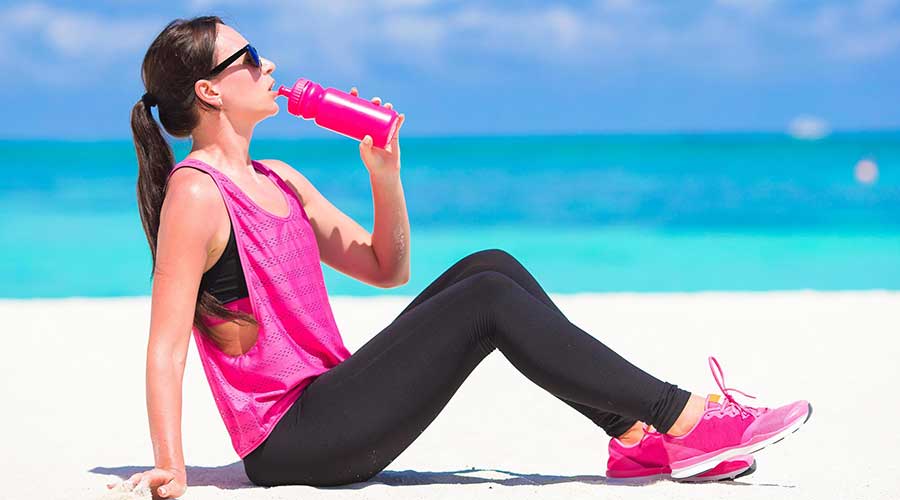Salt therapy – All you need to know
- 24 Feb - 01 Mar, 2024

After a pretty brutal winter in several parts of the country, warmer temperatures are very much welcome. As temperatures continue to rise through, our bodies will naturally lose more water throughout the day (mostly through sweat). While we don’t want to overdo it with drinking water, chances are that most of us are more likely to be dehydrated than overhydrated.
Some common signs of dehydration are dizziness, headache, dry mouth, bad breath, dark urine, etc. Not exactly pleasant! Fortunately, there are plenty of ways to stay hydrated, both with water and other methods. Keep reading for tips on how to stay healthy and hydrated this spring and summer.
Did you know that your body can lose anywhere from 0.5 to five lb of water overnight while you’re sleeping? A great way to rehydrate and recoup those losses are to have a big glass of H2O first thing in the morning. Prepare a glass of water and place it on your nightstand the night before. If you’re clumsy in the middle of the night (like yours truly), keep a water bottle by the bed instead of a glass.
Water isn’t the only morning option available. If you don’t want to down a glass of water first thing in the morning, opt for hydrating breakfast foods instead like oatmeal, chia pudding or a delicious smoothie.
There are so many different fruits and vegetables out there that are super high in water. We’ll list some examples of both below.
Fruit: oranges, peaches, watermelon, cantaloupe, strawberries, raspberries
Veggies: cucumber, celery, spinach, lettuce, broccoli, zucchini, bell peppers
Drinking glass after glass of unflavoured water can definitely get a bit cumbersome. Introduce some flavour and fun to your water by adding fresh fruit, herbs (tip: mint leaves with berries is perfection) or water flavouring drops. Another option is to swap out one or two glasses of still water for sparkling water instead. Try to limit sparkling water intake to one or two glasses a day though, as too much can cause bloating.
Both coconut water and milk contain electrolytes which actually help you stay hydrated longer than water. Coconut water takes the top spot in terms of electrolytes, as it contains sodium, calcium, potassium, phosphorus and magnesium. Opt for unflavoured coconut water to get all the health benefits without the unnecessary added sugar. Milk is no sloppy second either, as it contains three types of electrolytes (sodium, potassium, calcium).
If you’re like us, you know that having cute workout clothes can provide added motivation to head to the gym or go out for a run. The same goes for your water bottle. An old, worn out, ugly water bottle doesn’t exactly scream “Drink me!” throughout the day. Level up your water bottle game and buy a cute water bottle or two, preferably a smaller one and a large one.
Growing up in a desi household, we were often told to drink warm or room temperature water, and the habit’s stuck with us. We always ask for “water, no ice” at restaurants and rarely drink refrigerated water. It’s not just a desi custom though. Turns out drinking room temperature water is the best for both hydration and digestion. When you drink cold water, your body has to exert extra energy to get it up to room temperature, which results in water loss. Cold water also slows down digestion. If the idea of lukewarm water grosses you out, start with baby steps and drink cool water but not ice-cold and take it from there.
Staying hydrated doesn’t have to be boring. Turn it into a game or challenge by downloading an app that tracks water intake.
If you love coffee as much as we do, this news will brighten your day. A recent study shows that moderate coffee intake does not actually result in dehydration. While the participants in the study consumed three to six cups per day, it’s probably best to veer on the side of caution and stick to one to two cups a day instead. Even if those additional cups don’t end up dehydrating you, the extra caffeine could cause jitteriness and might make it harder for you to fall asleep at night.
COMMENTS